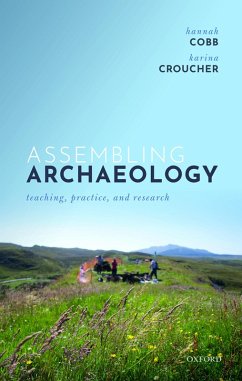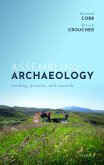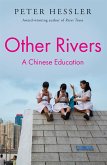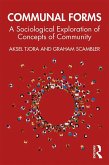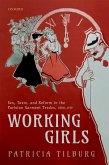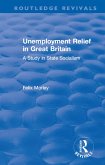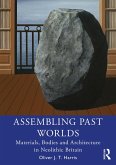Assembling Archaeology provides a radical rethinking of the relationships between teaching, researching, digging, and practicing as an archaeologist in the 21st century. The issues addressed here are global and applicable wherever archaeology is taught, practiced, and researched. At its heart this book addresses the undervaluation of teaching, demonstrating that this affects the fundamentals of contemporary archaeological practice and is particularly connected to the lack of diversity in disciplinary demographics. It proposes a solution which is grounded in a theoretical rethinking of archaeological teaching, training, and practice by advocating a holistic 'assemblage' approach which challenges traditional power structures and the global marketization of the higher education system. Drawing on insights from archaeology's current material turn, this book approaches the discipline as a subject of investigation and offers a new perspective founded upon the notion of the learning assemblage, which resituates teaching and learning as a central focus and contributes to broader discourses on critical pedagogy and rhizomatic learning. It ultimately argues for a robust archaeological pedagogy that is rooted in and emergent from the material realities of the profession, and will be valuable to everyone from academia to Cultural Resource Management (CRM), heritage professional to undergraduate student.
Dieser Download kann aus rechtlichen Gründen nur mit Rechnungsadresse in A, B, BG, CY, CZ, D, DK, EW, E, FIN, F, GR, HR, H, IRL, I, LT, L, LR, M, NL, PL, P, R, S, SLO, SK ausgeliefert werden.

